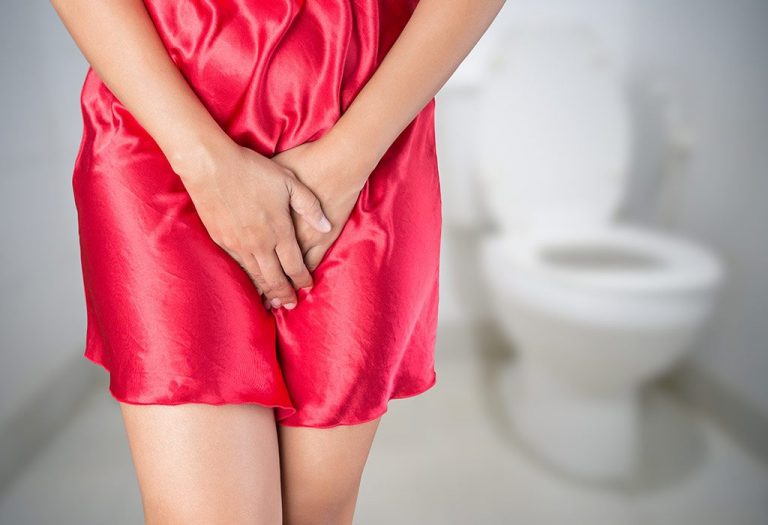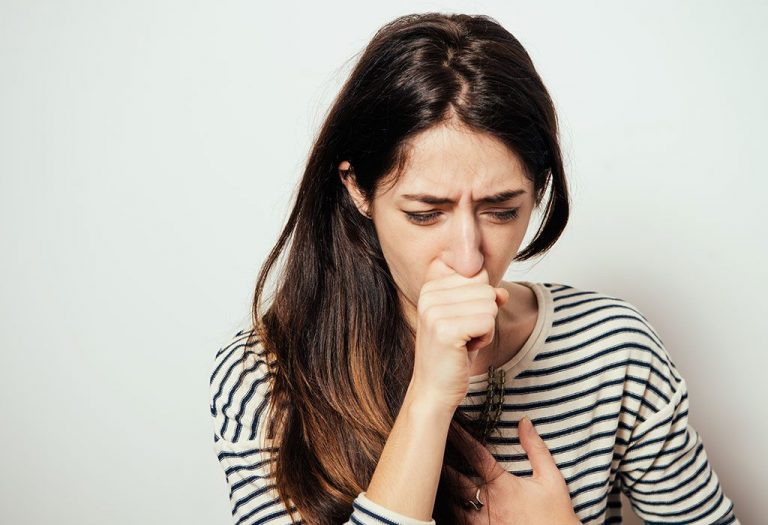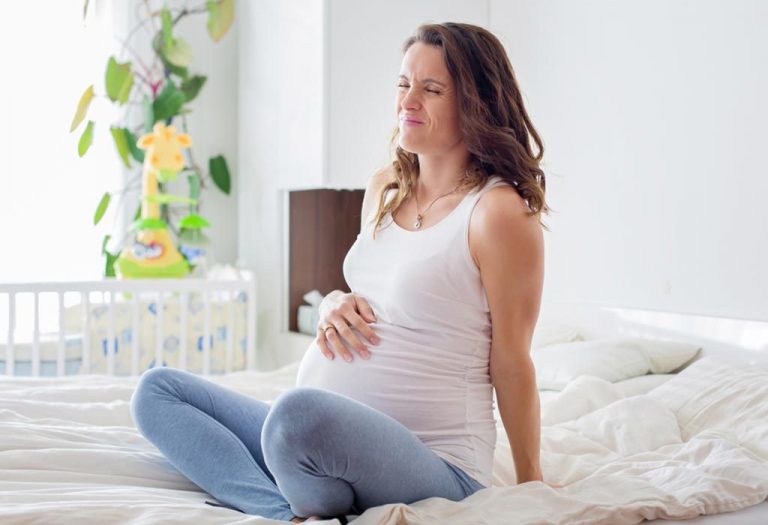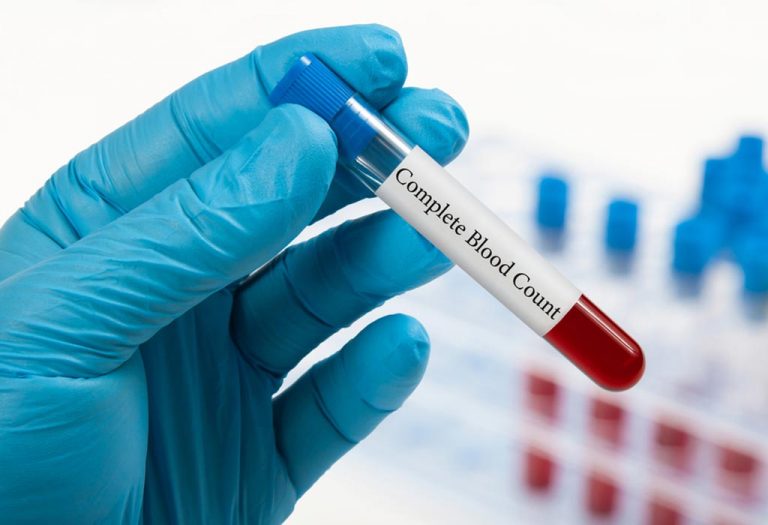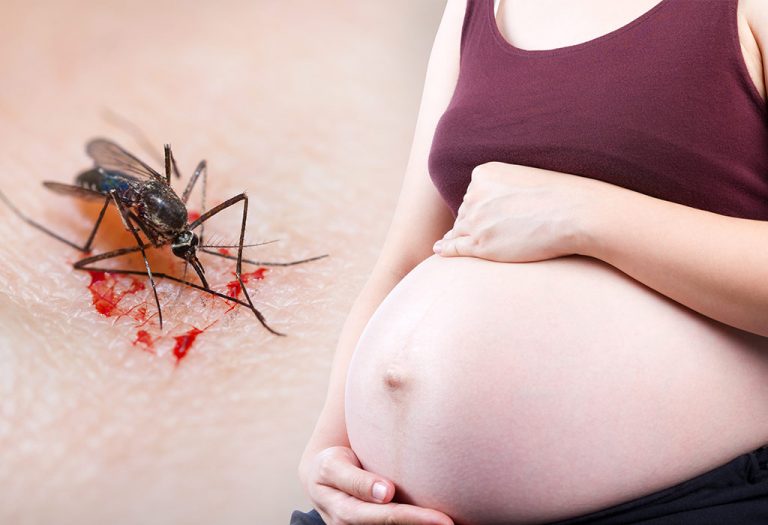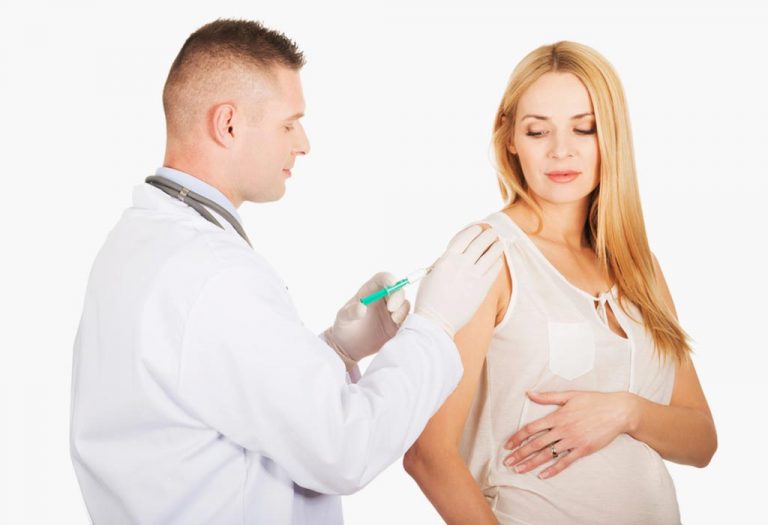Bacterial Vaginosis (BV) During Pregnancy – Causes, Symptoms and Treatment

Bacterial Vaginosis (BV) is a common vaginal infection that can significantly impact the health of pregnant women and their developing babies. Caused by an imbalance of naturally occurring bacterial flora in the vagina, it often leads to unpleasant symptoms such as unusual discharge, odour, and discomfort. Bacterial vaginal infection during pregnancy is particularly concerning due to its association with complications such as preterm birth, low birth weight, and increased susceptibility to other infections. Keep reading to learn about the causes, symptoms, and treatment options for bacterial vaginosis during pregnancy.
What Is Bacterial Vaginosis (BV)?
Bacterial vaginosis is common among women and shouldn’t be confused with sexually transmitted diseases. Bacterial vaginosis is usually associated with having sexual intercourse with multiple partners or an imbalance of bacterial flora in the vaginal area. Limiting the number of sexual partners one has or avoiding douching can reduce the chances of bacterial vaginosis during pregnancy (1).
How Common Is Bacterial Vaginosis During Pregnancy?
Bacterial vaginosis is fairly common during pregnancy, affecting around 30% of the population.
According to scientific studies, bacterial vaginosis during pregnancy has been linked to miscarriage, low birth weight, and premature rupturing of membranes in the body.
Bacterial vaginosis can occur in women who are having sexual intercourse for the very first time as well as before pregnancy or conception.
One in five women develop bacterial vaginosis during pregnancy.
Causes of Bacterial Vaginosis in Pregnancy
The primary causes of bacterial vaginosis in pregnant women are (5):
- Multiple sexual partners
- Using various contraceptive methods
- Having unprotected sex
- Using vaginal medications
- Overdose or intake of antibiotics
- Using too many vaginal injections, hormonal pills, and systemic hormones
- Overgrowth of harmful bacteria in the vagina during pregnancy
- Indiscriminate use of vaginal washes
What Does the Latest Research Say?
A recent study conducted to find the link between Vitamin D and bacterial vaginosis found that pregnant women with Vitamin D deficiency increased their chances of contracting a BV infection. This vitamin induces antibacterial proteins in the body and enhances the killing of harmful bacteria in various body tissues. However, more research is required to establish this (8).
Signs & Symptoms of Bacterial Vaginosis While Pregnant
Most cases of bacterial vaginosis in some women show no signs or symptoms. Common symptoms of BV during pregnancy include (2):
- A burning sensation during urination
- A thin, white or grey discharge during or after intercourse followed by a foul, fishy smell
- Irritation in the genital area
Will You Be Screened for BV Even If You Don’t Have Symptoms?
You will be screened for bacterial vaginosis (BV) even if you don’t exhibit any BV symptoms. However, screening for BV depends on your healthcare provider and several factors. You may not be screened for BV if you’re at high risk for premature delivery.
Women who have experienced preterm labour previously will be screened for bacterial vaginosis during pregnancy, irrespective of the lack of symptoms.
Diagnose of Bacterial Vaginosis
Bacterial vaginosis diagnosis begins with an inquiry about the patient’s medical history. Your doctor may ask whether you’ve had any previous infections or any sexually transmitted diseases (STDs).
A pelvic exam is often performed where the doctor inserts two fingers into your vagina and checks for signs of infection, followed by pressing the abdominal region to check for signs of the disease.
You can take a sample of your vaginal secretions and let the doctor examine it through a microscope. Your doctor will check for overgrowth of anaerobic bacteria in your vaginal flora and examine for ‘clue cells,’ which are vaginal cells clouded by harmful bacteria.
Placing a pH strip in your vagina to examine acidity levels is another common way to diagnose bacterial vaginosis. A pH level of 4.5 and higher in the vagina is considered to be a case of bacterial vaginosis (4).
Possible Complications of Bacterial Vaginosis During Pregnancy
Bacterial Vaginosis (BV) during pregnancy can lead to various serious complications that may affect both the mother and the baby. Here are some ways your pregnancy may be affected due to bacterial vaginosis (BV):
- Preterm Birth: BV has been linked to an increased risk of premature labour and delivery, which can result in various health issues for the newborn.
- Low Birth Weight: Babies born to mothers with BV are more likely to have a low birth weight, which can lead to developmental problems and other health concerns (7).
- Increased Risk of Infections: Pregnant women with BV are at a higher risk of developing infections such as chorioamnionitis, an infection of the placental tissues.
- Miscarriage: There is evidence to suggest that BV can increase the risk of miscarriage, particularly in the early stages of pregnancy.
- Postpartum Complications: BV may contribute to postpartum complications such as endometritis, an infection of the uterine lining after delivery.
Bacterial vaginosis usually resolves on its own after pregnancy. Women with BV may have perfectly normal pregnancies as well – the link between bacterial vaginosis and pregnancy, however, is not clear. But it is important to note that having BV can make you susceptible to certain diseases after pregnancy, like Sexually Transmitted Infections (STIs) and HIV. Women who aren’t pregnant but have BV may be vulnerable to Pelvic Inflammatory Disease and infections after gynaecological surgeries (6).
Effective Bacterial Vaginosis Treatment While Pregnant
Prompt and appropriate medical intervention can help manage symptoms and reduce the risk of adverse outcomes. Here are some effective options for the treatment of BV in pregnancy:
1. Metronidazole
This medicine is available as a topical gel which can be inserted into the vagina. You must avoid alcohol for one day after this treatment. Either way, it’s advisable to avoid consuming alcohol during pregnancy. This medication can be taken orally as well (11).
2. Clindamycin
Your doctor may apply the clindamycin cream to the insides of your vagina. The cream tends to weaken latex condoms (10).
3. Tinidazole
This medicine is taken orally. Avoid alcohol consumption when on this medication, as it can cause stomach upset and nausea (you will be prohibited from drinking alcohol during pregnancy).
Natural Ways to Treat Bacterial Vaginosis in Pregnancy
Several home remedies are also available for treating bacterial vaginosis. If you’re wondering how to get rid of BV while pregnant, you can try the natural remedies listed below.
1. Yoghurt
Yoghurt helps to build up the good or healthy bacteria in the vaginal area as friendly bacteria like lactic acid have fermented it. This can ward off bacteria and, over time, cure your BV condition. One serving a day is the recommended amount of consumption. However, processed yoghurt may not always contain live probiotics. Preparing yoghurt at home is the best way to benefit from active and live cultures (12).
2. Probiotic Supplements
Consult your doctor about using probiotic supplements during pregnancy. If you have BV, your doctor may prescribe these herself. They come in liquid and capsule/tablet form.
3. Garlic Supplements
Taking garlic supplements can help fight BV during pregnancy. Consult your doctor about using garlic supplements during pregnancy or, alternatively, whether you can add garlic to your diet.
4. Hydrogen Peroxide
Using hydrogen peroxide for cleaning the vagina daily can cure bacterial vaginosis. Consult a doctor since it can come with a few side effects.
5. Take ACV Baths
An apple cider vinegar bath can cure bacterial vaginosis and reduce the chances of future infections. It restores the acidic quality of your vaginal flora.
6. Use Baking Soda
Mixing baking soda with bath water and soaking your vagina in it can prevent infections and clean your vagina. After a bath, you can remove moisture carefully from your groin area with a soft cloth
7. Tea Tree Oil
Mixing a few drops of tea tree oil with coconut, olive, or sweet almond oil and applying topically is an effective remedy for bacterial vaginosis. Tea tree oil has anti-fungal and anti-bacterial qualities, which help combat infections.
How to Prevent Bacterial Vaginosis While Pregnant?
Inculcating hygienic habits is the most foolproof way to prevent an infection. Here are a few tips to keep in mind:
1. Safe Sex
Using condoms during intercourse times can reduce your chances of bacterial vaginosis. If you have multiple sexual partners, use condoms to decrease the risk of contracting BV. If you are trying to get pregnant, make sure that both of you have healed from any previous genital infection (3).
2. Wear Breathable Cotton Underwear
Underwear made from materials such as spandex traps moisture and creates breeding grounds for harmful bacteria. Wearing breathable cotton underwear is important as it can prevent harmful bacteria deposits and vaginal infections.
3. Good Hygiene
Always wipe from the front to the back after using the bathroom. Change your pad or tampon several times throughout the day to maintain hygiene. If you use organic tampons, make sure you change them at least thrice daily.
4. Healthy Diet
A healthy and nutritious diet can boost immunity and prevent BV from recurring even after delivery. When pregnant, ensure your diet is rich in vitamins, minerals, essential acids and micronutrients.
5. Avoid Douching
Douching means washing the vagina with water or other liquids to eliminate odour. If you’ve been doing this, you should stop it right away as you may be washing off the healthy bacteria from your vagina. The vagina has a self-cleaning mechanism and doesn’t need any external cleaning (7).
6. Do Not Use Soap Down There
Scented soaps, bath oils and bubble bath liquids can deplete your vagina of its natural flora and make it susceptible to an infection like BV. Instead, use plain water and your hands to wash your private parts gently.
7. Keep Your Workouts Light
Consider changing to a light workout that doesn’t make you sweat a lot. This, coupled with loose workout clothing, can keep vaginal infections at bay. Ensure you shower after coming home from a morning run or the gym.
FAQs
1. Can Bacterial Vaginosis recur during pregnancy?
Yes, BV can recur during pregnancy, especially if the underlying factors that contributed to the initial infection are not addressed. Women who have had BV before are also at a higher risk of recurrence. It is important to follow the treatment plan and take preventive measures to reduce the likelihood of recurrence.
2. Can Bacterial Vaginosis affect fertility after pregnancy?
While BV is primarily a concern during pregnancy due to its potential complications, untreated or recurrent BV can also affect fertility by causing pelvic inflammatory disease (PID). PID can lead to scarring and damage to the reproductive organs, which may impact future fertility. Prompt treatment of BV is important to prevent long-term reproductive health issues (9).
Although bacterial vaginosis can be a persistent and irritating condition, it does not pose any risk to your pregnancy. Stick to a healthy lifestyle to keep infections at bay.
References/Resources:
1. Kairys. N, Carlson. K, Garg. M; Bacterial Vaginosis; National Library of Medicine; https://www.ncbi.nlm.nih.gov/books/NBK459216/
2. Bacterial vaginosis; NHS; https://www.nhs.uk/conditions/bacterial-vaginosis/
3. Bacterial Vaginosis (BV); Centers for Disease Control and Prevention; https://www.cdc.gov/bacterial-vaginosis/about/index.html
4. Bacterial vaginosis; WHO; https://www.who.int/news-room/fact-sheets/detail/bacterial-vaginosis
5. Bacterial vaginosis (BV); Healthdirect; https://www.healthdirect.gov.au/bacterial-vaginosis#causes
6. Bacterial vaginosis (BV); Healthdirect; https://www.healthdirect.gov.au/bacterial-vaginosis#complications
7. Bacterial vaginosis and pregnancy; March of Dimes; https://www.marchofdimes.org/find-support/topics/pregnancy/bacterial-vaginosis-and-pregnancy#
8. Ma. L, Zhang. Z, Li. L, et al.; Vitamin D deficiency increases the risk of bacterial vaginosis during pregnancy: Evidence from a meta-analysis based on observational studies; Frontiers; https://www.frontiersin.org/journals/nutrition/articles/10.3389/fnut.2022.1016592/full
9. Jennings. L. K, Krywko. D. M; Pelvic Inflammatory Disease; https://www.ncbi.nlm.nih.gov/books/NBK499959/
10. Bacterial Vaginosis; Centers for Disease Control and Prevention; https://www.cdc.gov/std/treatment-guidelines/bv.htm
11. Ferris. D. G; Management of Bacterial Vaginosis During Pregnancy; American Academy of Family Physicians; https://www.aafp.org/pubs/afp/issues/1998/0315/p1215.html
12. Nachum. Z, Colodner. R, Salim. R et al.; Probiotic yogurt for the prevention of bacterial vaginosis recurrence in pregnant women at risk for preterm labor; American Journal of Obstetrics & Gynecology https://www.ajog.org/article/S0002-9378(05)02321-5/fulltext
Also Read:
Green Discharge when Pregnant
Vaginal Odor during Pregnancy
Vaginal Dryness in Pregnancy
Jelly Like Discharge while Pregnant
Was This Article Helpful?
Parenting is a huge responsibility, for you as a caregiver, but also for us as a parenting content platform. We understand that and take our responsibility of creating credible content seriously. FirstCry Parenting articles are written and published only after extensive research using factually sound references to deliver quality content that is accurate, validated by experts, and completely reliable. To understand how we go about creating content that is credible, read our editorial policy here.






